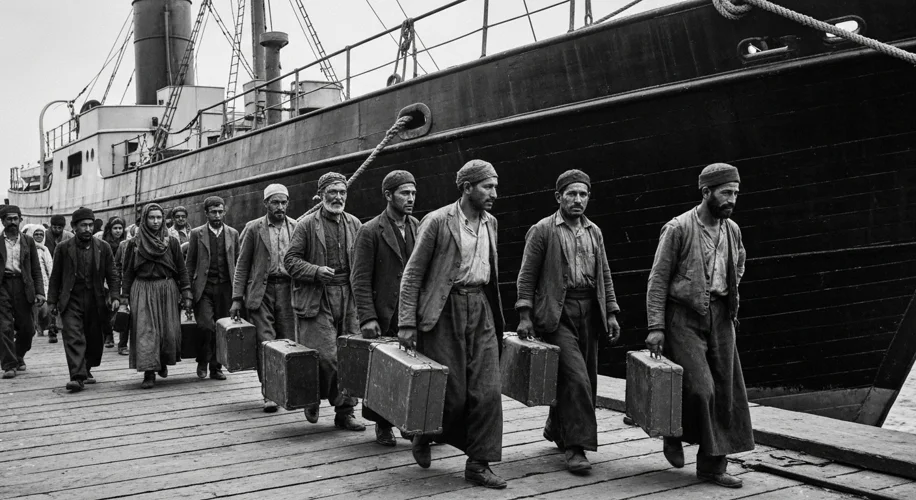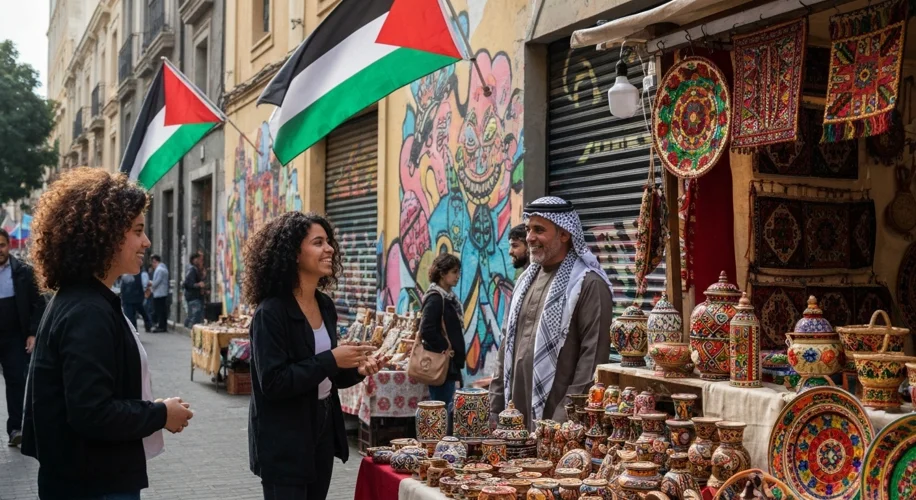The year is 1900. The Ottoman Empire, a vast but fraying tapestry of cultures and ethnicities, holds sway over lands that have echoed with history for millennia. In the heart of this empire, in cities like Bethlehem, Nazareth, and Jerusalem, life hums with ancient traditions, bustling souks, and a deeply rooted heritage. Yet, beneath this surface, a quiet restlessness was stirring. For many Palestinians, the promise of a better life, a chance to escape economic hardship or political uncertainty, lay across vast oceans, in a land far removed from the olive groves and ancient stones of their homeland: Chile.
This migration, seemingly improbable – from the dusty plains of the Levant to the sweeping coastlines of South America – is a testament to human resilience and the enduring search for opportunity. It’s a story woven with threads of economic necessity, political upheaval, and the simple human desire for a future unburdened by the struggles of the past.
The initial waves of Palestinian migration to Chile, beginning in the late 19th and early 20th centuries, were not driven by a single cataclysmic event, but rather by a confluence of factors. The Ottoman Empire, while a provider of stability for centuries, was also experiencing internal pressures. Economic stagnation, coupled with a growing sense of nationalism among various groups within its borders, created an environment ripe for emigration. For many Christian Palestinians, who often formed the vanguard of this migration, seeking opportunities for economic advancement and freedom from certain religious or political restrictions, the Americas offered a beacon of hope.
Chile, in particular, began to emerge as a destination. Its burgeoning economy, fueled by industries like nitrate mining and agriculture, created a demand for labor. Moreover, Chile’s relatively open immigration policies, at least compared to some other nations, made it an attractive prospect. These early pioneers, often arriving with little more than the clothes on their backs and a fierce determination, laid the groundwork for a community that would grow and thrive.

Imagine arriving in a land where the language is foreign, the customs are different, and the very air you breathe carries the scent of unfamiliar shores. This was the reality for many arriving in Chile. They settled in urban centers like Santiago and Valparaiso, as well as in the more rural agricultural regions. Their initial ventures were often in small businesses, peddling goods and establishing shops, a familiar pattern of migrant entrepreneurship.
The Palestinian community in Chile, however, did not merely survive; it flourished. Over generations, they integrated into Chilean society, contributing significantly to its economic, political, and cultural landscape. Many became successful merchants, industrialists, and professionals. Families that started with humble beginnings in small shops eventually built significant enterprises, their names becoming synonymous with Chilean commerce.
But the story doesn’t end with economic success. The Palestinian-Chilean community has also maintained a strong connection to its cultural heritage. Arabic language schools, cultural centers, and religious institutions (both Christian and, later, Muslim) were established, ensuring that traditions, music, and cuisine were passed down. This dual identity – embracing their Chilean nationality while cherishing their Palestinian roots – became a hallmark of the community.
A significant surge in Palestinian migration occurred in the mid-20th century, largely in response to the escalating political turmoil in Palestine, particularly the Nakba in 1948 and subsequent conflicts. These later waves of migrants brought with them different experiences and perspectives, further enriching the established community and sometimes presenting new challenges of integration and adaptation.
The impact of this migration is profound. Today, Chile boasts one of the largest Palestinian diaspora populations in the world, estimated to be in the hundreds of thousands. This community has produced notable figures in politics, arts, sports, and academia, demonstrating the depth of their contribution to Chilean society. The cultural exchange has also been reciprocal, with Palestinian flavors and traditions subtly weaving their way into the broader Chilean cultural fabric.
It’s a narrative that speaks volumes about the human spirit – the courage to leave everything behind for the chance of a better future, the tenacity to build a new life in unfamiliar territory, and the enduring power of heritage to connect generations across continents. The story of Palestine to Chile is not just a tale of migration; it is a vibrant chapter in the rich, complex history of both the Palestinian people and the nation of Chile.

